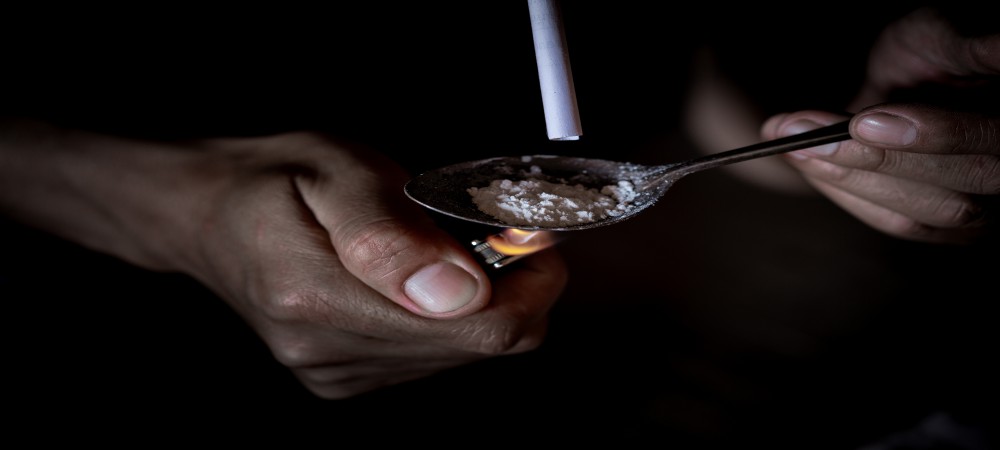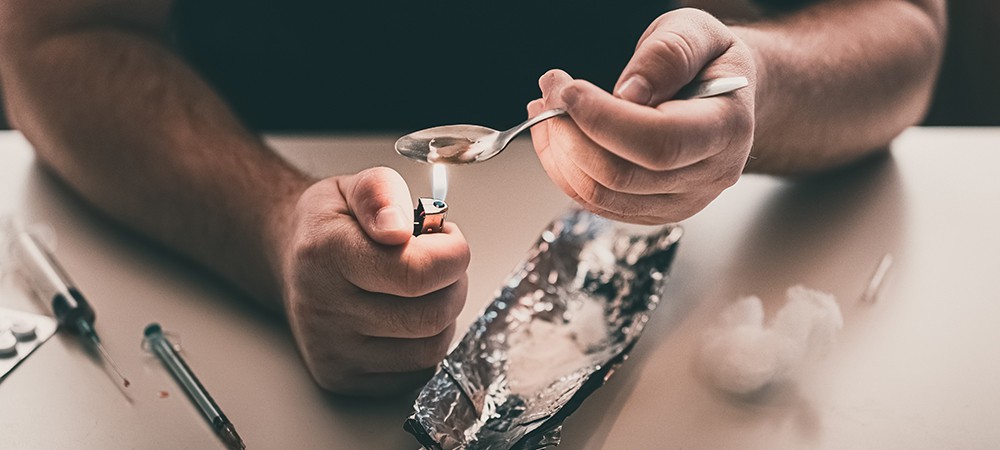While many people struggle with meth addiction, they are unaware of how to begin their treatment. Typically, the first step in overcoming meth addiction is detoxification which isn’t a pleasant experience. However, knowing what to expect during methamphetamine addiction rehab can prepare your mind ahead.
Canada is battling a crystal meth endemic. Abuse of crystal meth is still on the rise in Canada with about eight million people battling some form of meth abuse.
With the rise in demand for meth around the world, Canada produces even more meth. Unsurprisingly, the United Nations once dubbed Canada as the largest producer of meth in the world.
If you or a loved one is battling with meth addiction, you need all of the help you can get. Part of that help is getting all of the information you need about what happens during meth rehab. It’s why we have written this blog.
This article can help you rekindle your hope of overcoming meth addiction. With explanations on what to expect during methamphetamine rehab, you’ll have an insight into how meth rehab works. Also, we’ll explain the different stages of meth addiction rehab in detail. Here’s what the road to sobriety looks like!
Meth Addiction: What It Is
There are many names people call methamphetamine in Canada. It is commonly referred to as
- Crystal meth
- Ice
- Chalk
- Crank
- Glass
- Redneck cocaine
- Blue
- Speed
Meth is a shiny, bluish-white and glass-like substance that people consume. It is a powerful stimulant that produces dependence and compulsive effects. Also, meth and amphetamines are similar although the latter is used in treating narcolepsy and Attention Deficit Disorder{ADD}. However, amphetamines like Concerta and Adderall are legal while crystal meth isn’t.
While many prefer to snort crystal meth, others prefer to smoke, swallow or inject through their veins. Also, crystal meth comes in tablets, powder or crystal form. There are no specific age grades for the use of meth however, it is commonly used in rave parties.
Furthermore, the use of crystal meth in nightclubs is the reason people term it a club drug. This highly addictive drug is very concentrated causing first-time users to get hooked by it.
The intensity of this high makes meth addiction is one of the most difficult addictions to overcome especially if you’re doing it yourself. Meth addiction rehab is the most effective way to quit the use of crystal meth.
Effects of Meth Addiction
The effects of meth differ according to how much of it you consume. Also, the method through which you take meth determines its effect. For instance, for people who snort meth, they tend to feel its effects in five minutes or less. On the other hand, the effect of meth kicks in 30 minutes after swallowing it as a tablet.
The most common method of consuming crystal meth is by injecting it through veins. The reason is crystal meth triggers the release of some chemicals in the brain. These chemicals are:
- Noradrenaline
- Dopamine
- Serotonin
These three chemicals are in charge of the excitement and alertness we feel. They also are released when we are happy or having sex. The effects of crystal meth are physical and mental, not forgetting to add that they are unpredictable. Here are some of them.
Short term mental effects of crystal meth
- Less fatigue and increased energy
- Euphoria
- Increased sexual drive
- A rush of ideas
- High mood
- Lack of appetite
- Increased alertness and wakefulness
- Increased confidence
Short term physical effects of crystal meth
- Twitching muscles
- An irregular and fast heartbeat
- Stomach pains
- High blood pressure
- Dizziness and headache
- Dilated pupils
- Unusual body temperature
- Fast breathing
If you inject crystal meth into your system, chances are high that you may cause the spread of diseases. Examples of these diseases are.
- HIV
- Hepatitis B and C.
Typically, constant crystal meth abuse can cause a decrease in euphoria. This then leads to an increase in compulsive behaviour and unpleasant effects.
Furthermore, people who binge on crystal meth are usually too focused. They also exhibit repetitive behaviours combined with hallucinations, paranoia and sleeplessness.
Long term mental effects of crystal meth
Using crystal meth over a long period can no doubt lead to dependence. The effects of long-term use can cause periods of depression and stimulation.
Here are other long-term mental effects of crystal meth:
- Long or short-term memory issues
- Difficulty in controlling urges
- Brain damage
- Inability to be attentive
- Loss of finger or hand dexterity
- Paranoia
- Violence
- Homicidal thoughts
- Hallucinations, both visual and auditory

Long term physical effect of crystal meth
One major risk of long use of crystal meth is cardiovascular problems. Physical problems associated with long-term meth abuse include:
- Stroke
- Poor heart function
- Shortness of breath
- Cardiac arrest
- Death
Also, the long-term physical effects of crystal meth can include poor nutrition and a weak immune system. Crystal meth can cause cavities, dry mouth and sour taste. Other physical effects are:
- Lung disease
- Kidney damage
- Stroke
- Cracked teeth
- Skin infections and sores
- Uncontrolled movements
If pregnant women consume crystal meth, it can result in:
- Low birth weight
- A decrease in appetite
- Premature delivery
- Birth defects
Symptoms of Meth Addiction
Finding out what to expect during methamphetamine rehab is the next step when you notice the symptoms of meth addiction in you or a loved one.
From insomnia to aggressive behaviours, meth addiction symptoms cover a broad spectrum. While the symptoms are broadly classified into two — behavioural and physical symptoms, they are also difficult to conceal.
Behavioural symptoms of meth addiction
- Psychosis
- Increased violent behaviour
- Anxiety
- Loss of interest in other things
Physical symptoms of meth addiction
- Tooth decay
- Pale skin
- Cracked teeth
- Liver or kidney failure
Stages of Meth Addiction Rehab: What to Expect
Meth addiction rehab typically begins with withdrawing from meth use. For many addicts, the withdrawal stage is usually very painful because of its symptoms. But that it’s where it ends.
Part of understanding what to expect during methamphetamine rehab is understanding the step-by-step breakdown of the procedure. Here’s what we mean.
Withdrawal
The more you consume crystal meth, the higher your tolerance for the drug. What this means is that your body will require more crystal meth to give you the high effect. If you are unable to get high, your body will start to demand meth.
This demand will exist in the form of what we call withdrawal symptoms. These symptoms are the primary indicator that you’re in the withdrawal stage of meth addiction treatment.
Detox
Detox is a process that happens through medical intervention. It’s the stage of meth addiction treatment that helps you go through difficult withdrawal. What detox simply means is to remove the addictive substance (crystal meth) from your body.
Addiction Treatment
Going to rehab after detox is important because you put yourself at risk of relapsing if you don’t. A rehab centre offers you more chances of long-term sobriety.
You see, during the rehab (addiction treatment) stage, experts will help you treat the addiction. While adequate care and monitoring are a given, part of what to expect during meth addiction treatment includes counselling, behavioural therapy and more.
This is the stage of meth addiction treatment that provides you with the tools you need to prevent a relapse. As we will explain later on in this blog, meth rehab can either be in-patient and outpatient.
Related Article: The Cost of Meth Addiction and Other Substance Rehab
What to Expect During Meth Addiction Treatment: The Withdrawal Stage
When a person desists from using crystal meth, they begin to experience withdrawal symptoms. These symptoms are a function of the intensity of your meth addiction. As such, they can be severe or mild.
It’s important you seek medical attention if your symptoms get severe. Some examples of common crystal meth addiction withdrawal symptoms are:
Sleepiness and fatigue
Crystal meth can make you very hyperactive and even cause you not to sleep. However, if you stop taking it, you will feel the opposite. Addicts can experience sleepiness and tiredness during their first week of withdrawing from crystal meth. Typically, after five days of not using crystal meth, the sleepiness kicks in.
Furthermore, addicts experiencing this withdrawal symptom can sleep for about 11 hours daily. This sleepiness is often referred to as hypersomnia. Also, you may experience intense dreams which are likely to reduce in the first week of withdrawal.
Psychosis
Psychosis is a symptom of crystal meth withdrawal that consists of hallucinations.
Psychosis can include delusions which are ideas that appear true but aren’t.
This isn’t just part of what to expect during the withdrawal stage of meth rehab. People who are high or binging on meth can also experience this symptom.
Anxiety
Meth addicts who are going through withdrawal are often anxious. According to an NCBI study, up to 30% of addicts in the meth withdrawal stage will have anxiety and related symptoms.
Increased hunger
It’s not unusual for people using meth to lack appetite. Often, while high on meth, they can go days without food. However, all these changes when they stop using the drug. During withdrawal, meth addicts have strong cravings for food, especially carbohydrates.
Furthermore, they develop a craving for sweet things that starts right from when they withdraw from drug use. This strong craving can last up to about three weeks during withdrawal.
Depression
While experiencing crystal meth withdrawal, depression is completely normal. It’s normal not to feel excited about everything. However, after three weeks of withdrawal, depression decreases. Although some people may experience depression longer than three weeks.
Cravings for meth
There is always a strong urge to take meth during withdrawal. This strong urge is known as cravings and it’s common with people addicted to drugs.
What Happens During Meth Addiction Treatment: The Detox Stage
Detox has to happen under medical supervision. It can either be at a detox centre or the rehab centre and it usually lasts for about a week. Although this timeline depends on how addicted the patient is to meth.
Detox which is an abbreviation for detoxification is aimed at removing the addictive substance completely from the body. It usually precedes rehab. In a way, it readies your body for addiction treatment. During detox, what happens is that medications are used to reduce the withdrawal symptoms.
Furthermore, there are specific medications for certain withdrawal symptoms. For instance, Advil is usually administered to patients with body pains. Below are the withdrawal symptoms and the drugs administered.
- Psychosis: Sedatives and antipsychotic drugs such as Risperidone and Olanzapine.
- Anxiety: Diazepam and lorazepam are types of Benzodiazepines used in treating severe addiction.
- Body pains: Acetaminophen which is commonly referred to as Tylenol can help ease body pains. Also, Ibuprofen, which can be otherwise referred to as Advil helps to relieve mild ache.
- Depression: Fluoxetine (Prozac) and Bupropion are antidepressants. These drugs can suppress depression during meth withdrawal. Also, Imipramine and Mirtazapine are antidepressants used to treat depression during meth withdrawal.
- Cognitive abilities: Bupropion, Modafinil and Topiramate (Topamax) help to improve cognitive ability during meth detox.
- Sleep and cravings: Narcolepsy drugs such as Modafinil can help with meth addiction withdrawal. Modafinil has stimulant effects which can help with sleepiness and cravings.

What to Expect during Meth Addiction Rehab and Treatment
There are two major types of rehab treatment for methamphetamine and they are:
- In-patient Rehab program.
- Out-patient Rehab Program.
In-patient rehab program
Addiction specialists recommend in-patient programs most especially if there are fears of relapses. During in-patient programs, you’ll be put under close medical supervision. In some cases, doctors may try to conduct the detox process together with in-patient programs.
In-patient programs have all the necessary facilities to quicken the recovery process. The close supervision and daily treatment sessions characterized by in-patient meth rehab programs increase your chances of recovery.
Part of what to expect during this form of methamphetamine rehab is a disconnect with the outside world. During in-patient programs, the staff at the rehab prohibit patients from having contact with the outside world.
The sole aim of this prohibition is to prevent relapses that come with triggers. Hence, in-patient programs help patients recognize their methamphetamine triggers and control them. Common types of in-patient therapy sessions include:
-
Group sessions:
Here you will discuss with other patients in the rehab, each patient will share their addiction experiences. Group sessions are very effective since you’ll get to relate and learn from other patients who are battling methamphetamine addiction too.
-
Individual sessions
During individual sessions, you’ll get to speak to counsellors who have considerable experience helping meth addiction patients. Through these sessions, you’ll be able to uncover behavioural patterns that promote meth abuse. Perhaps more importantly, you’ll be able to develop methods to break these patterns.
Moving on, a typical day in rehab is not only full of counselling sessions. There are sessions of mind-building activities like yoga and meditation. All these activities aim at strengthening your mind and keeping it busy.
Out-patient rehab program
For patients that do not have severe methamphetamine addiction cases, out-patient programs are a better option. A common feature to expect during this form of meth rehab is accountability. You’ll have to visit the rehab at appointed times for monitoring.
The challenge with out-patient rehab programs is that patients are still in contact with their triggers. Once patients are still in contact with their triggers, gaining sobriety can be challenging. It is why doctors suggest an out-patient program for people without a serious level of meth addiction.
Like in-patient rehab, it also includes programs like group counselling and teaching sessions that will help patients recover quickly.
Typically, out-patient programs take an average of 12-hours weekly. So, seeing all these, you should know what a typical day in rehab is like.
Counselling as a Part of Meth Addiction Rehab
Counselling is an important part of rehab. During counselling, counsellors apply different approaches and techniques to help addicts deal with problems. However, some approaches are more effective than others.
Furthermore, in combination with these approaches, addicts will undertake structured or formal counselling. Although, you should note that these counselling sessions are usually after dealing with withdrawal symptoms. Here are different types of counselling to expect during meth rehab.
Cognitive behavioural therapies
In this type of therapy, the counsellors will help you understand what triggered the meth addiction. Also, they’ll help you learn new coping mechanisms and correct old ones. This helps in preventing relapse. Here are other benefits of CBT.
- CBT is effective in addressing problems associated with crystal meth addiction. It is also the most extensively evaluated counselling approach.
- Cognitive behavioural therapies strive to correct thinking errors and behaviours that instigated crystal meth use.
- Cognitive behavioural therapies are very effective in addressing some mental health problems like depression and anxiety. These problems are also withdrawal symptoms making counselling important for meth rehab.
Other common behavioural therapies include:
- Family education
- Individual counselling
- 12-step programs
- Family counselling
- Drug testing
Solution-focused therapies
Solutions-focused therapies use the addicts’ strengths to solve the addiction problem.
Narrative therapy
This therapy emphasizes the importance of the addicts’ life stories. This approach helps addicts realize their stories can shape how they think and act.
Support groups
Support groups provide fellowship and support for meth addicts. Through the platform offered by support groups, meth addicts can interact with others going through the same recovery process. When this happens, meth addicts will realize they aren’t alone in their journey. Also, support groups help patients to focus on their treatment.
Although many meth addicts don’t like support groups, others find it comforting to hear other addict’s stories. Finally, combining support groups with counselling can prove very effective in achieving sobriety.
Motivational incentives
To foster meth addiction recovery, a motivational incentives approach can also be used. In return for their abstinence from meth use, patients are given rewards like money.
Related Article: How Crystal Meth Ruins Your Life Unless You Seek Help
To Sum It Up
Our rundown of what to expect during methamphetamine rehab shows that it’s not a scary prospect. The first stage, detox, typically lasts for a week or less and helps to prepare patients for treatment. While it lasts for a week for most, in some cases, detox can last for two weeks.
With this knowledge of how methamphetamine rehab works, you can get the best out of your treatment program. Arming yourself with how detox and counselling works can help make the recovery process easier.
Finally, depending on your preference, there are inpatient and outpatient programs to choose from. Inpatient programs ensure you are monitored round the clock. They are a comprehensive approach to rehab that allows you to focus on your recovery, pick up healthy habits and have a change of environment.
Here at 1000 Islands Rehab Centre, our experts can provide a custom treatment plan to guide your meth rehab journey. With us, you can build the key tools you need to enjoy long-term sobriety. Book an appointment to discuss your options today.
